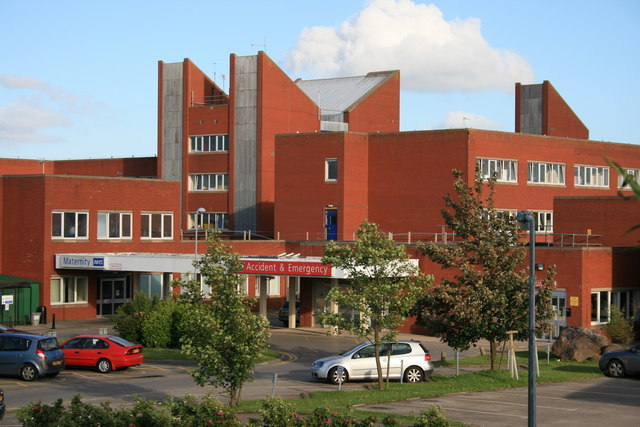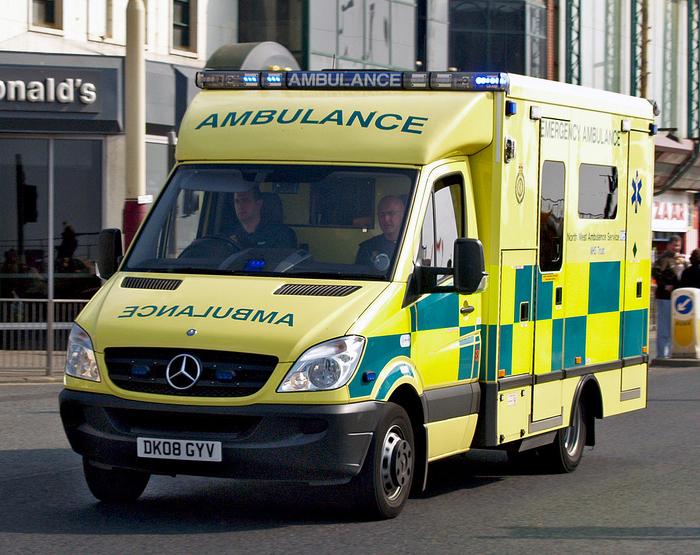|
Healthcare In Cumbria
Healthcare in Cumbria was the responsibility of Cumbria Clinical Commissioning Group until July 2022. On 1 April 2017 32 GP practices left the CCG and merged with Lancashire North CCG to form Morecambe Bay CCG. History From 1947 to 1974 NHS services in Cumbria (which did not then exist) were managed by Newcastle Regional Hospital Board which covered Cumberland, and the part of Westmorland covered by the Borough of Appleby and the North Westmorland Rural District and the Manchester Board which covered the remainder. In 1974 the boards were abolished and replaced by regional health authorities. The whole of the newly created Cumbria came under the Newcastle RHA. Regions were reorganised in 1996 and North Cumbria came under the Northern and Yorkshire Regional Health Authority. South Cumbria came under the North West (Mersey & North West) RHA. Cumbria from 1974 had three district health authorities South, East and West In 1993 South Cumbria was renamed Morecambe Bay District, whi ... [...More Info...] [...Related Items...] OR: [Wikipedia] [Google] [Baidu] |
Clinical Commissioning Group
Clinical commissioning groups (CCGs) were NHS organisations set up by the Health and Social Care Act 2012 to organise the delivery of NHS services in each of their local areas in England. On 1 July 2022 they were abolished and replaced by Integrated care systems as a result of the Health and Care Act 2022. Establishment The announcement that GPs would take over this commissioning role was made in the 2010 white paper "Equity and Excellence: Liberating the NHS". This was part of the government's stated desire to create a clinically-driven commissioning system that was more sensitive to the needs of patients. The 2010 white paper became law under the Health and Social Care Act 2012 in March 2012. At the end of March 2013 there were 211 CCGs, but a series of mergers had reduced the number to 135 by April 2020. To a certain extent they replaced primary care trusts (PCTs), though some of the staff and responsibilities moved to local authority public health teams when PCTs ceased to ... [...More Info...] [...Related Items...] OR: [Wikipedia] [Google] [Baidu] |
:Category:Health In Cumbria ...
{{Cat main, Healthcare in Cumbria Cumbria Cumbria Cumbria ( ) is a ceremonial and non-metropolitan county in North West England, bordering Scotland. The county and Cumbria County Council, its local government, came into existence in 1974 after the passage of the Local Government Act 1972. Cumb ... [...More Info...] [...Related Items...] OR: [Wikipedia] [Google] [Baidu] |
Furness General Hospital Scandal
The Furness General Hospital scandal involves an investigation by Cumbria Constabulary and other government and public bodies into the deaths of several mothers and newborn babies, during the 2000s at Furness General Hospital (FGH) in Barrow-in-Furness, Cumbria, England. Cases date back to 2004, with a number of major incidents occurring in 2008. The death of Joshua Titcombe and a suppressed report by the Morecambe Bay NHS Trust brought the spotlight onto FGH in 2011 when investigations began. Claims of medical records being intentionally destroyed alongside the discovery of major wrongdoing on behalf of midwives led to threats of closure to the maternity ward. The scandal was covered in a 2012 BBC ''Panorama'' episode titled "How Safe is Your Hospital?" with the Stafford Hospital scandal. In June 2013, Cumbria Constabulary announced they would only be pursuing the Titcombe case and that other complaints would not proceed to a criminal prosecution. Later in the same month, the Brit ... [...More Info...] [...Related Items...] OR: [Wikipedia] [Google] [Baidu] |
Royal College Of Obstetricians And Gynaecologists
The Royal College of Obstetricians and Gynaecologists (RCOG) is a professional association based in London, United Kingdom. Its members, including people with and without medical degrees, work in the field of obstetrics and gynaecology, that is, pregnancy, childbirth, and female sexual and reproductive health. The college has over 16,000 members in over 100 countries with nearly 50% of those residing outside the British Isles. Her Royal Highness the Princess of Wales became the RCOG's patron in 2018. The college's primary object is given as "The encouragement of the study and the advancement of the science and practice of obstetrics and gynaecology", although its governing documents impose no specific restrictions on its operation. Its present offices are based in London Bridge. Previously, the offices were located near Regent's Park in Central London. History The British College of Obstetricians and Gynaecologists was founded in September 1929 by Professor William Blair-Bell ... [...More Info...] [...Related Items...] OR: [Wikipedia] [Google] [Baidu] |
Northumberland, Tyne And Wear NHS Foundation Trust
Cumbria, Northumberland, Tyne and Wear NHS Foundation Trust is one of the largest mental health and disability Trusts in England employing more than 7,000 staff, serving a population of approximately 1.7 million, providing services across an area totalling 4,800 square miles. It works from over 70 sites across Cumbria, Northumberland, Newcastle, North Tyneside, Gateshead, South Tyneside and Sunderland. It also has a number of regional and national specialist services. History The trust changed its name from Northumberland, Tyne and Wear NHS Foundation Trust to Cumbria, Northumberland, Tyne and Wear NHS Foundation Trust in October 2019. Role The trust's main sites are: * St Nicholas Hospital, Newcastle upon Tyne, *St George's Park, Morpeth, Northumberland, *Northgate, Morpeth, Northumberland, *Walkergate Park, Newcastle upon Tyne, *Monkwearmouth Hospital, Sunderland, *Carleton Clinic, Carlisle. The trust also provide services from a number of smaller units. In April 2018 ... [...More Info...] [...Related Items...] OR: [Wikipedia] [Google] [Baidu] |
Lancashire Care NHS Foundation Trust
Lancashire & South Cumbria NHS Foundation Trust, known as Lancashire Care NHS Foundation Trust until October 2019, provides a range of services including secondary mental health care, inpatient child and adolescent mental health services, perinatal mental health and forensic services including low and medium secure care. It also provides a range of physical health and well-being services in the community with partners in the Lancashire and Sefton area. The Trust was first established in 2002 and employs approximately 7,000 staff who provide care from more than 400 sites. Development The trust has built a new mental health inpatient unit in Blackpool, called The Harbour. The Harbour is a new 154 bedded mental health hospital situated on Preston New Road. It deployed a new Servelec RiO electronic patient record in March 2018. Performance In 2013/14 the trust sent 251 patients to private hospitals at a cost of £3.6m, an increase from 2012/13 when there were 136 referrals at a c ... [...More Info...] [...Related Items...] OR: [Wikipedia] [Google] [Baidu] |
North Cumbria University Hospitals NHS Trust
North Cumbria University Hospitals NHS Trust was created in April 2001 by merging Carlisle Hospitals NHS Trust and West Cumbria Healthcare NHS Trust. It ran Cumberland Infirmary in Carlisle, Cumbria, the birthing unit at Penrith Hospital and West Cumberland Hospital in Whitehaven, England. In January 2012, the Trust decided that its preferred future was as part of Northumbria Healthcare NHS Foundation Trust but in 2018 it proposed to merge with Cumbria Partnership NHS Foundation Trust. The merger took place in October 2019. The new organisation is called North Cumbria Integrated Care NHS Foundation Trust. Financial Problems The Trust's financial problems are longstanding and associated with the move of services out of hospital closer to patients' homes and the difficulties of delivering services in a large rural area. The Trust predicts a deficit of £22.8m in 2013-14. In May 2014 it was reported that the Trust had been forced to get a loan in order to pay its debts. Acco ... [...More Info...] [...Related Items...] OR: [Wikipedia] [Google] [Baidu] |
NHS Trust Development Authority
The NHS Trust Development Authority (NHSTDA) was an executive non-departmental public body of the Department of Health. Its formation came as a result of reorganisation of the National Health Service (NHS) in England outlined in the Health and Social Care Act 2012. It is now part of NHS Improvement. Organisation David Flory was its chief executive. He retired in May 2015. The NHSTDA existed to manage the process of NHS trusts becoming foundation trusts and to performance manage those hospital trusts that remained directly accountable to the NHS. In March 2014 it was reported there were 20 trusts which the TDA expected to end 2013-14 in the red. The Authority compiled a categorised list of NHS trusts, segmented into six broad groups, some of which were regarded as unlikely to have a future as independent organisations but refused to publish it. It was announced in June 2015 that the chief executive posts at Monitor and the Authority were to be merged, although there would not be a ... [...More Info...] [...Related Items...] OR: [Wikipedia] [Google] [Baidu] |
Monitor (NHS)
Monitor was an executive non-departmental public body of the Department of Health, responsible between 2004 and 2016 for ensuring healthcare provision in NHS England was financially effective. It was the sector regulator for health services in England. Its chief executive was Ian Dalton and it was chaired by Dido Harding. Monitor was merged with the NHS Trust Development Authority to form NHS Improvement on 1 April 2016. History The body was established on 5 January 2004 under the Health and Social Care (Community Health and Standards) Act 2003, and was formally called The Independent Regulator for Foundation Trusts. The legislation made it responsible for authorising, monitoring and regulating NHS foundation trusts. It took on the brand name Monitor from August 2004 The Health and Social Care Act 2012 formally changed the organisation's name to Monitor and gave it additional duties. In addition to assessing NHS trusts for foundation trust status and ensuring that foundation ... [...More Info...] [...Related Items...] OR: [Wikipedia] [Google] [Baidu] |
Simon Stevens (civil Servant)
Simon Laurence Stevens, Baron Stevens of Birmingham, (born 4 August 1966) is a British public policy adviser, former CEO, and independent member of the UK House of Lords. He served as the eighth Chief Executive of the National Health Service in England from 2014 to 2021. He first joined the NHS in 1988, and worked at the Department of Health and 10 Downing Street, as well as internationally, including in Guyana, Malawi, and in the United States. A former member of the Labour Party, Stevens was a councillor in the London Borough of Lambeth from 1998 to 2002. Stevens served as a senior executive at the UnitedHealth Group from 2004 to 2014, an American for-profit managed health care company which offers health care products and insurance services. He was also a Visiting Professor at the London School of Economics from 2004 to 2008. Stevens was appointed as Chief Executive of NHS England after a worldwide competitive search, and served under Prime Ministers David Cameron, Theres ... [...More Info...] [...Related Items...] OR: [Wikipedia] [Google] [Baidu] |
North West Ambulance Service
The North West Ambulance Service NHS Trust (NWAS) is the ambulance service for North West England. It is one of ten ambulance trusts providing England with Emergency medical services, and is part of the National Health Service, receiving direct government funding for its role. NWAS was formed on 1 July 2006, following the merger of four previous services (Cumbria Ambulance Service; Lancashire Ambulance Service; Cheshire and Mersey Ambulance Service; and Greater Manchester Ambulance Service) as part of Health Minister Lord Warner's plans to combine ambulance services. Based in Bolton, the trust provides services to almost 7million people in Greater Manchester, Cheshire, Merseyside, Lancashire, Cumbria, and the North Western fringes of the High Peak district of Derbyshire (covering the towns of Glossop and Hadfield) in an area of . NWAS provides emergency ambulance response via the 999 system, as well as operating the NHS 111 advice service for North West England. They als ... [...More Info...] [...Related Items...] OR: [Wikipedia] [Google] [Baidu] |


